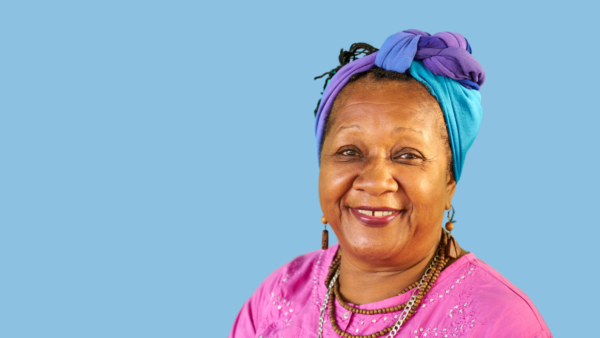2020: a tough year
2020 has been challenging and damaging in so many ways. For many people, it has been completely life-changing. We have all experienced a sense of loss this year, but for some of us that has been loss of health, of loved ones, of livelihoods and of futures. There’s not much positive to be had in any of that. At least not on the face of it. And yet, somehow, even while the world has in large part been hibernating and grieving, there have been good things happening.
The value of practicing gratitude
So what I want to talk about in today’s podcast, as we come towards the end of the year and we plan for a festive break like no other, is gratitude. Finding gratitude, sometimes starting that process through gritted teeth, but nonetheless feeling gratitude for what we have been able to do, what we have been able to learn, what we have been able to enjoy this year.
- What are some of the psychological and emotional benefits of gratitude and of being grateful on a regular basis?
- How can you get those benefits?
- What things can you do, in terms of gratitude, that will make the greatest difference to your mental, emotional and physical well-being?
Emotional and psychological benefits of gratitude
First, the science bit: links between gratitude practice…being grateful regularly…and health outcomes has a significant and growing body of evidence behind it. Here are some highlights:
1. Gratitude practice is a better predictor of life satisfaction than 30 different aspects of personality, like extraversion, compassion, openness (Wood, Joseph and Maltby, 2009). And don’t forget that personality is pretty set, whereas being grateful…you have control over.
2. People who practice gratitude report being less anxious, less depressed and happier than those who don’t (Cregg and Cheavens, 2020). This may be to do with how easy it is to access positive memories for people who are grateful, versus negative memories. And we know that the negativity bias (that I podcast on way back) primes us to pay more attention to negative than to positive events and things around us, so it would make sense that making it easier to mentally find positive things acts as a buffer for us from the brain’s pre-wiring to go negative.
3. Grateful people are better able to cope with challenges and setbacks because they are more likely to seek social support, reinterpret negative events and take the learning from those negative events (Wood, Joseph and Linley, 2007). So being grateful leads to greater resilience.
4. People with a gratitude practice sleep better (Wood, Joseph, Lloyd and Atkins, 2009) – it’s thought that this is probably to do with grateful people’s improved access to positive things they want to remember about their day just before they go to sleep.
In summary, if you’re more grateful more of the time, then you will be more satisfied with life, less stressed, less depressed, happier, more resilient and get a better sleep each night. And in terms of the research, that’s just the start. There is loads more research out there that I haven’t even mentioned. I mean, seriously, if you could find a medical treatment that could give you all that, you’d make a fortune. But no fortunes required here, just a shift in mindset and some shifts in behaviour.
Top tips for building gratitude into daily life
So, if those are the benefits of being grateful, how can you get them, what are the tips and tricks from the grateful among us? Well here are four:
Ritualise
First up, there are lots of ways of making gratitude part of your day, every day. And the more often you practice gratitude, the better results you get according to the research. Some ideas…first idea, start your day by coming up with 3 things you’re grateful for, and vary them too. Second, start a gratitude journal. Journaling is a big thing these days right? Actually, it always has been. It basically means keeping a diary and in it, recording (amongst whatever else you want to record) what you’re grateful for today.
Looking back at what you’ve written increases the chances that you’ll encode and deepen those positive memories. And doing it at the end of the day will almost certainly help with sleep because of the accessibility of the positive memories you’ve just written about. Third idea is over dinner, maybe when you’re with your loved ones, or on your own, using that as an opportunity to say what you’ve been grateful for that day (either in your head, or if you’re with others, out loud). All of those ideas will help you to ritualise gratitude – everyone’s different so riff it and see what works for you.
Go small
Second, try and find gratitude in all different aspects of your day. Don’t miss the small moments, like the taste of your morning cuppa, or a beautiful sunrise, or the feel of rain on your face, or a chance chat at a shop with someone you haven’t seen for a while. And within some small moments, there are big things you can be grateful for. Like the fact that you probably have water you can drink and somewhere to live and food you can eat and your health is ok.
I talked at Season 1, episode 10 about Going Slow to appreciate the small things – eating and drinking, experiencing life. Mindfulness and meditation also have a part to play in this. Mindfulness enables you to be in the moment and really truly experience what is happening for you at that moment in time. And when you are mindful, you can be more appreciative and more grateful for what you have and for what you are experiencing moment to moment each day.
People
Remember the people important to you and how grateful you are to them and for what. Record that, encode it, remember. And then TELL THEM. Dropping them a text is amazing. Calling them and speaking to them is even better. That stuff has astonishing powers. It may feel like it’s going to awkward but when you get into it, and when you’ve done it, you’ll feel great, and you will have made the other person feel great.
And by the way, top tip for making it less awkward if you’re on the receiving end of gratitude from someone: just take it. You might feel an overwhelming urge to diminish what you’ve said or done that they’re being grateful for. But don’t. You’re being given a gift. Let it in. There is good research also in this area that by showing gratitude in this way to people, they are more likely to do the same. That’s also true for showing kindness and compassion. So if you go out of your way to vocalise your gratitude or pass it on in some other way, it’s highly likely that you will start a chain reaction of gratitude that makes a difference to dozens of people, not just one.
Setbacks
Ok Covid, what have you taught us? I mean, you weren’t trying to particularly, you were mainly trying to survive and multiply with all the havoc you’ve wrought as a result, but what are the things that you have forced us to learn, to do differently?
Well for a start, many of us are pretty darn good now at using video call technology, even if we had no plan to be at the start of the year. Many of us know our local areas better than we did at the start of the year too. And we may well know how to handle unexpected change better than we did back then. So being grateful for our challenges and problems and setbacks and taking the learning from them is another area of focus for gratitude. So when faced with setbacks, ask yourself – what can I learn from this? What have I learned from this? What will I do differently next time, if anything? The more we are grateful even for the tough stuff, the more resilient we become and the better able we are to cope with change.
Reflective gratitude idea alert!
So there’s my four tips for practicing gratitude. One final thought as an end of year opportunity for reflective gratitude. For about 15 years now, I’ve played a game with my family on New Year’s Eve that I came up with. I’ve made a fairly amateurish looking card deck with a category on each card. For example – hero of the year, villain of the year, music of the year, meal of the year, film or series of the year and so on. I’ve never missed a year and this year will be no different. I find that the process we all go through really helps to put the year to bed positively, to be grateful, to be real about the tough stuff and to start out afresh in the new year. I would totally recommend it.
I’m off for a Christmas break but I will be back first thing in 2021 for more Strengths Guy podcasts. Till then, please subscribe and share, particularly with the people you know who will get something from the podcast. Until 2021, stay strong!
The Strengths Guy podcast is available on all major podcast platforms. Find it on Apple podcasts, Spotify, Google podcasts, Stitcher, ACast, TuneIn, Breaker and Soundcloud. Make sure to subscribe to get them at the start of the working week!












